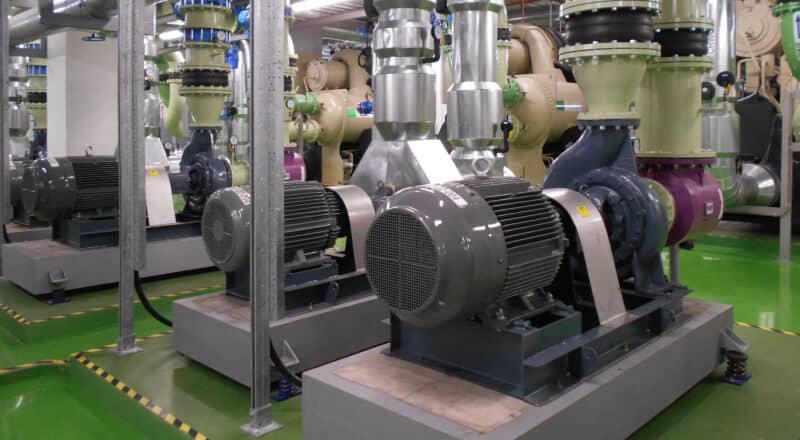In the fast-paced world of the Food & Beverage industry, efficiency is the key ingredient for success. From processing to packaging, every step in the production chain demands precision and reliability. In this pursuit, electric motors emerge as silent heroes, powering the machinery that keeps the industry running smoothly. Let’s delve into the electrifying benefits that electric motors bring to the table in the Food & Beverage sector.
Energy Efficiency
One of the most significant advantages of electric motors is their superior energy efficiency compared to traditional combustion engines. In an industry where energy consumption is a major concern, electric motors offer a greener alternative. They convert a higher percentage of electrical energy into mechanical energy, minimizing waste and reducing carbon emissions. This not only lowers operational costs but also aligns with sustainability goals, making it a win-win for both businesses and the environment.
Hygienic Operation
Maintaining strict hygiene standards is non-negotiable in food processing. Electric motors play a crucial role in ensuring cleanliness and safety. Unlike their combustion counterparts, electric motors produce zero emissions, eliminating the risk of contaminating food products with exhaust fumes or residues. Additionally, electric motors are easier to clean and maintain, reducing the risk of bacterial growth and ensuring compliance with stringent food safety regulations.
Precise Control and Flexibility
In the Food & Beverage industry, precision is paramount. Electric motors offer precise speed control and torque management, allowing manufacturers to fine-tune their production processes for optimal results. Whether it’s mixing ingredients, controlling conveyor belts, or regulating packaging machinery, electric motors provide the flexibility to adapt to varying production demands. This level of control translates into higher product quality, consistency, and throughput, ultimately enhancing customer satisfaction.
Reduced Noise Pollution
The hustle and bustle of a food processing facility can be overwhelming, but electric motors operate with minimal noise pollution compared to their diesel or petrol counterparts. This quieter operation creates a more conducive work environment for employees, reducing fatigue and enhancing productivity. Moreover, it mitigates noise disturbances in surrounding areas, fostering better community relations and compliance with noise regulations.
Reliability and Durability
Downtime is the arch-nemesis of productivity in the Food & Beverage industry. Electric motors boast a reputation for reliability and durability, keeping production lines running smoothly with minimal interruptions. With fewer moving parts and simplified maintenance requirements, electric motors offer longer service life and lower total cost of ownership compared to conventional engines. This reliability translates into higher uptime, ensuring continuous supply chain operations and meeting market demands effectively.
Adherence to Industry Trends
As the industry evolves, so do its technological requirements. Electric motors align with the overarching trend towards automation and digitalization in the Food & Beverage sector. Integrating electric motors into smart manufacturing systems enables real-time monitoring, predictive maintenance, and seamless integration with Industry 4.0 technologies. This not only enhances operational efficiency but also future-proofs businesses against evolving market dynamics.
In conclusion, electric motors are indispensable assets in the modern Food & Beverage industry, offering a myriad of benefits ranging from energy efficiency and hygiene to precision control and reliability. By embracing electric propulsion, businesses can streamline their operations, reduce environmental footprint, and stay ahead in a competitive market landscape. As the industry continues to innovate, electric motors will undoubtedly remain at the forefront, powering the path towards a sustainable and prosperous future.


